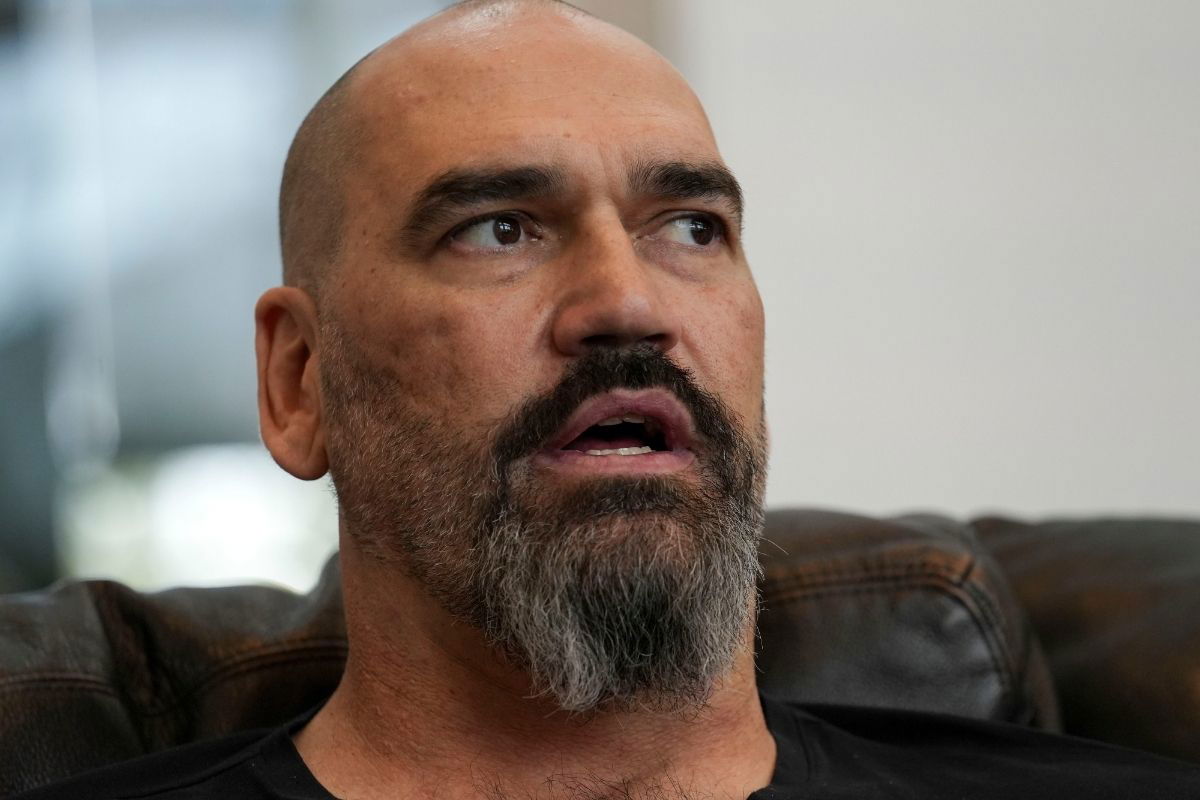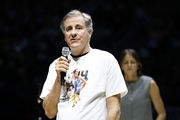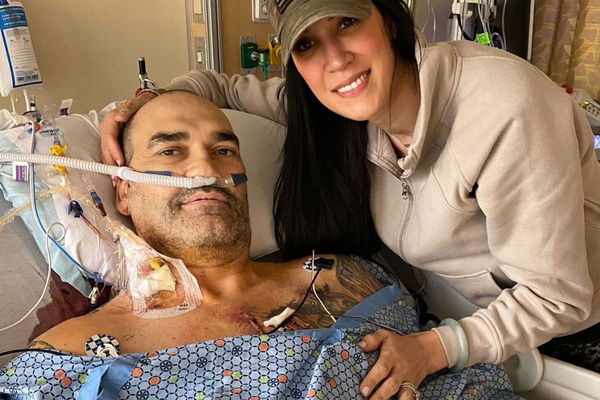
Imago
Credits: Imagn

Imago
Credits: Imagn
For those who followed Scot Pollard during his bruising days with the Sacramento Kings, the image that remains is one of brute strength and grit. The star who was once seen as the Mohawked enforcer, who carved out an 11-season NBA career through effort and attitude after he was selected 19th overall by the Detroit Pistons in the 1997 NBA Draft. But behind that physical presence was always something deeper, something invisible that no one saw coming. And now, long after his final rebound and championship moment with the Boston Celtics, Pollard’s life has taken on a different kind of urgency, the one which is not tied to basketball glory but to survival and a deeply human reckoning.
Watch What’s Trending Now!
The ESPN E60 documentary Heart of Pearl, released on Father’s Day, peeled back the curtain on Pollard’s battle against a life-threatening heart condition, which was eerily similar to the one that claimed his father, Pearl, decades earlier when he was just 54. Scot Pollard’s battle concluded in surgery, a new heart pounding in his chest, and a fresh chapter written in a life which was almost ready for its last buzzer. Unlike most successes, though, this one did not end in celebration. It cost a terrible emotional toll for Pollard; it was haunting.
In a recent interview with Fox40 News, Pollard laid bare a truth few transplant survivors speak publicly about: the weight of guilt that comes with receiving the ultimate gift of living. “You’re feeling unworthy,” Pollard admitted. “You feel like, OK, nature’s given this extended life because somebody else died… You can’t be a human and not feel that. Life — and now you are living on.” The donor, as Pollard discovered, was a man named Casey Angell, who was a complete stranger, but later, whose wife, Pamela, and son William met with Pollard’s family, sharing stories, grief, and ultimately, healing.
ADVERTISEMENT
“They don’t make guys like Scot Pollard very often.”
On a @KUHoops team with three first round picks, @ScotPollard31 won fans over with his gritty, hard-nosed style of play.
‘Heart of Pearl’ premieres this Sunday at 1 PM ET on @ESPN, streaming after on @ESPNPlus. pic.twitter.com/Csv4Ah3zwH
— E60 (@E60) June 9, 2025
Pollard related the story of Casey’s family’s choice of donation. “Unfortunately, there was nothing else they could do to save his life,” Pollard said. “But they decided to make him an organ donor… and he saved five people. My life, two other lives, and somebody is seeing now because of Casey.” Pollard took the platform to acknowledge Casey, as it’s a bond that transcends traditional definitions of connection. As one born from tragedy, preserved through sacrifice, and sustained by mutual healing, Pollard doesn’t just carry a new heart. But now, he continues to carry Casey’s legacy, as it is now interwoven with his own.
ADVERTISEMENT
From Hardwood to Heartstrings: Scot Pollard’s Life Beyond the Court
From his outstanding years at Kansas to his stint with the Kings during their early-2000s era, Scot Pollard’s name was firmly ingrained in basketball history before his medical crisis. Though he was never the superstar, he was the kind of player every team needed: physical, relentless, and wholeheartedly in performing the dirty job in the paint. His NBA championship ring with the Boston Celtics in 2008 capped off a career defined more by intangibles than stats.
But after his retirement, Pollard’s world shifted first towards reality TV, including an 8th place finish on Survivor: Kaôh Rōng, and later toward media work as he gave punditry a shot. His life took a dangerously different path in 2021, when a virus started up a genetic heart disease that had been dormant. His pulse pounding 10,000 additional times a day, he was in the ICU at Vanderbilt in early 2024, waiting for a donor who he thought would never arrive.
ADVERTISEMENT
The transplant came on February 16, 2024, and recovery moved faster than doctors expected. Just 13 days later, Polard walked out of the hospital, and a year after that, he stood once more at Kansas University; however, this time he was not wearing sneakers but instead came as a survivor, representing something greater than basketball ever could. “That helps both of us,” he said of his connection with Casey’s family. “Helps with the survivor’s guilt… really, truly, he’s my angel.”
Top Stories
Jaxson Hayes vs Mascot: Everything You Need to Know About the Entire Episode of Altercation, Suspension and More

“Forgot He Plays Basketball”: NBA Legend Blasts Warriors’ Kristaps Porzingis Trade Amid Jimmy Butler Rumor

Fever Ownership Nowhere on Sophie Cunningham’s “Most Involved” WNBA List

LeBron James-Steph Curry Team-Up Gets Major Boost After Warriors’ Kristaps Porzingis Trade

Crisis Deepens for Chicago Owner as Mismanagement Pulls in Investors, City Officials


Imago
Scot Pollard in hospital
Now, Pollard uses his experience not for self-promotion but for a bigger purpose. “Please consider becoming a donor,” he urged. “I’m not telling you to do it. I’m asking you — educate yourself.” His message is clear that organ donation isn’t just a medical procedure. It’s an act of humanity. One that gave him a future, a second chance and a legacy greater than sport. Something that mirrors why humanity is important.
ADVERTISEMENT
ADVERTISEMENT
ADVERTISEMENT
ADVERTISEMENT